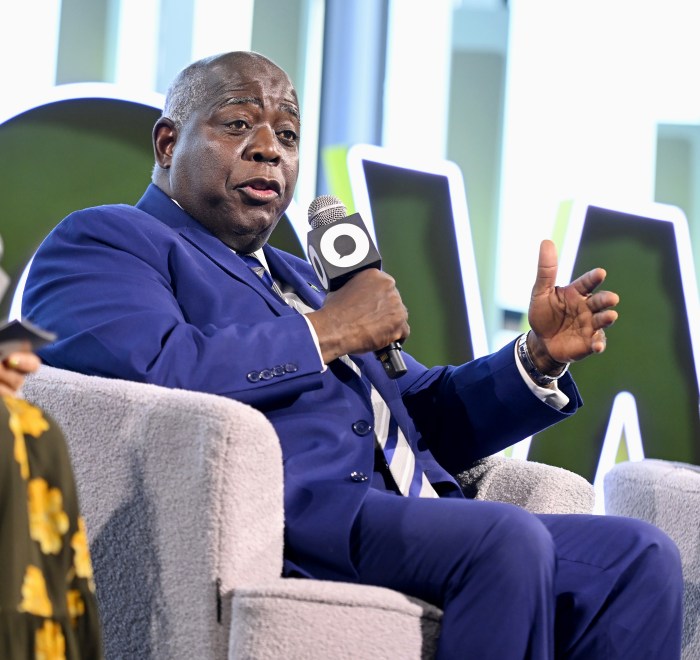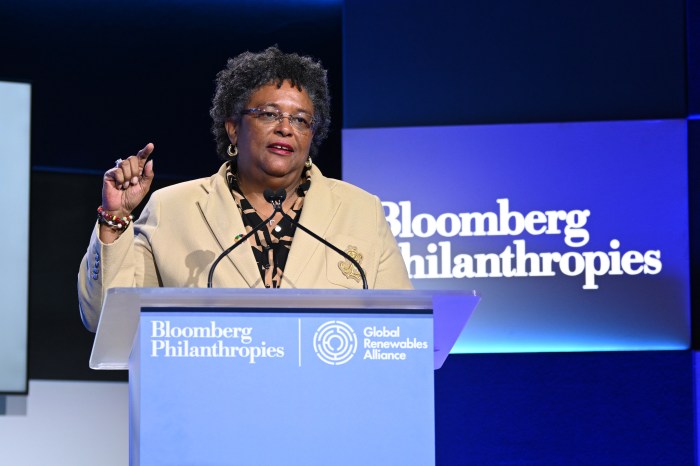Caribbean
The World Health Organization (WHO) is urging Caribbean and other countries to start using immediately the updated guidelines to reduce sexually transmitted infections (STIs) in response to the growing threat of antibiotic resistance.
In issuing the new guidelines, the WHO said chlamydia, gonorrhea, and syphilis are all caused by bacteria, noting that they are generally curable with antibiotics.
However, WHO said these STIs often go undiagnosed, and they are becoming more difficult to treat, with some antibiotics now failing as a result of misuse and overuse.
It is estimated that, every year, 131 million people are infected with chlamydia, 78 million with gonorrhea, and 5.6 million with syphilis.
WHO said of the three STIs, gonorrhea has developed the strongest resistance to antibiotics.
WHO said strains of multidrug-resistant gonorrhea do not respond to any available antibiotics have already been detected.
The health organization said an untreated STI in a pregnant woman increases the chances of stillbirth and newborn.
Bahamas
The Bahamas Ministry of Tourism plans to meet with stakeholders to discuss preventative measures against the Zika virus.
More cases of the virus have recently surfaced in the island, making the total number of cases eight.
Tourism Minister Oble Wilchombe told the Guardian Business that a regional effort should be made in order to seek funding to help prevent the virus from infecting visitors that come to The Bahamas and other Caribbean states.
Wilchombe referred to the virus as a “red flag’ for tourist destination, particularly in the Caribbean.
He said the country has to adapt into a “state of emergency” so that “we are fighting to ensure prevention.”
Since the first case of Zika was reported on Aug. 10, The Bahamas has received three international travel warnings.
Recently, three additional Zika cases were confirmed and health officials say there were 83 suspected cases found, eight of whom are pregnant women.
The tourism minister warned about the short and long term effects of continued international travel warnings for The Bahamas.
Barbados
Barbados has established a Special Committee to review a proposal for duty-free zones and is currently looking at the experiences of other countries to help get it right.
Finance and Economic Affairs Minister Christopher Sinckler announced the plan for duty-free zones during last month’s Financial Statement and Budgetary proposals.
He said a Cabinet paper outlining the composition of the committee and its terms of references is expected to be taken to Cabinet for approval soon.
The committee will review the duty-free zones initiative and report its findings and recommendations to Minister Sinckler within three months, so a firm proposal can be taken to the Cabinet Committee on Economic Policy for examination and then forwarded it to Cabinet for approval.
It will benefit from the technical expertise of some countries that have already implemented a similar initiative.
The finance and economic minister has expressed hope that the duty-free zones in operation, visitors, especially those from the Caribbean, would consider Barbados a destination for cost-effective shopping.
However, only selected products would be available in the duty-free zone.
Cayman Islands
Honduras President Juan Hernandez recently paid a visit to the Cayman Islands and met with Cayman Islands Premier Alden McLaughlin to discuss trade.
This was a follow up on the Cayman Island government’s recent announcements that it wants to see the British territory trading more with Honduras.
The premier, Deputy Premier Moses Kirkconnel and other ministers continued the talks initiated by their recent visit to Honduras.
McLaughlin said in a release, “the visit reinforces the friendship between our two countries and affirms the importance accorded by the Cayman Islands and Honduras to strengthen bilateral opportunities for cooperation.”
Discussions focused on furthering opportunities for trade and commerce as well as “other mutually beneficial initiatives.”
Kirkconnel said the government appreciates the visit coming soon after the Cayman Islands initial visit to Honduras.
Jamaica
The Jamaica government is moving to develop a national health insurance scheme to fund the public health system.
The National Health Fund (NHF) will be responsible for developing the system.
NHF Chairman Christopher Zacca said Health Minister Dr. Christopher Tafton gave the mandate.
The minister said a national health system is a solution to address the need adequately to fund the health sector and the significance to the public who will have a better healthcare system.
Zacca said the work to develop the scheme has just started. He said it is a very complex process that requires lot of stakeholder consultations but it is not a process that will take months, may be more than a year or two.
The NHF was established by the government to reduce the financial burden of healthcare on the population by subsidizing the cost of medication for l6 chronic illness.
St. Lucia
St. Lucia is preparing to host a major Brazilian investment mission in November which will have numerous opportunities for business and strengthen ties between the two countries.
The Embassy of Brazil in St. Lucia said the mission will comprise investors and parliamentarians who want to do business with St. Lucia entrepreneurs and other business persons, in a wide range of sectors.
The mission is scheduled for Nov. 1-17, 2016 and it will comprise 15 members who are willing to establish and open opportunities to invest in St. Lucia.
The trip is being organized by a Brazil-based group called Nomad Development.
According to Ambassador Sergio Court, the Brazilian Business Mission will offer a wide range of opportunities to the government and people of St. Lucia, through the business community.
The wide range of opportunities, will include prospects for investment partnerships in construction and infrastructural development, tourism, hotel development, agriculture and agro industries, farming and food production, sports, alternative energy, water and electricity.
Suriname
As of Sept. 15, 2016 Haitians who wish to visit Suriname will need a visa as the Dutch CARICOM country is moving to clamp down on criminal activities, including illegal immigrants.
Haitian authorities said Suriname has made it mandatory for Haitian nationals, a CARICOM member state, to be in possession of a visa to enter the country.
Media reports in Haiti said the French government, through its embassy in Suriname, had complained that Haitian migrants passed through the Dutch island to enter French Guiana in large numbers seeking asylum.
Figures released in Haiti show that more than half of the passengers on the airline, Insel Air, which serves the French side of the Caribbean island, were of Haitian origin.
On March 16, 2016 a report stated that more illegal Haitian migrants had entered French Guiana and that many had used Suriname’s international airport.
It said airlines now have to file full lists of passengers to the Suriname Ministry of Foreign Affairs and that while a tourist card will be issued to travelers from Sept. 15, all Haitian nationals with a ticket to Suriname will have to be in possession of a visa.
Trinidad
Trinidad and Tobago and Guyana will soon sign a formal agreement for technical assistance to provide the South American country development its oil and gas sector.
The agreement is expected to be executed by November, following visits by Guyanese officials to T&T.
T&T Energy Minister Nicole Olivierre recently visited Guyana to hold talks with President David A. Granger where the offer of technical support was made.
She said Guyana has no experience in the oil and gas industry and was very receptive of the offer.
The minister said Granger had also asked for support in education with emphasis on engineering and technical studies, as well as infrastructure development, agriculture and eco-tourism.
Olivierre said a Memorandum of Understanding (MoU) is being drafted.
— Compiled by Azad Ali
























